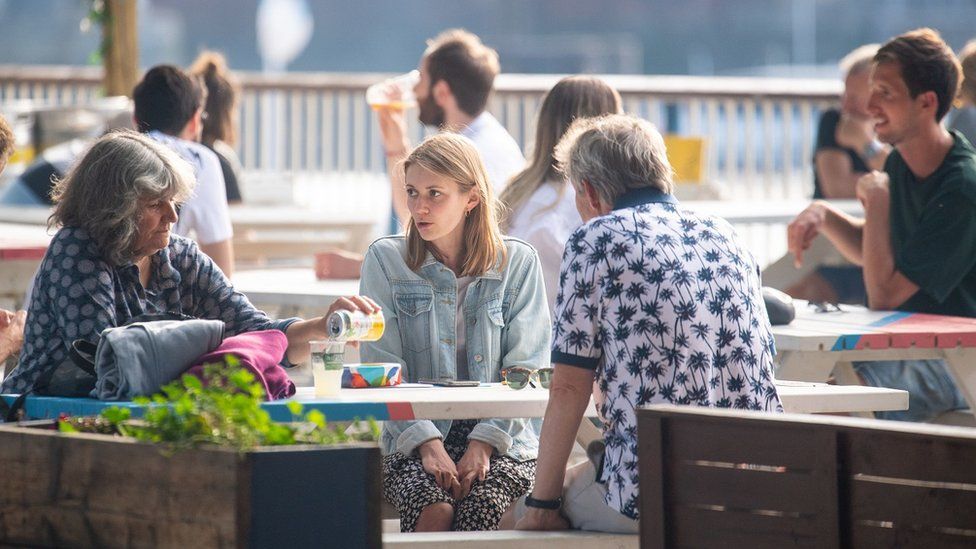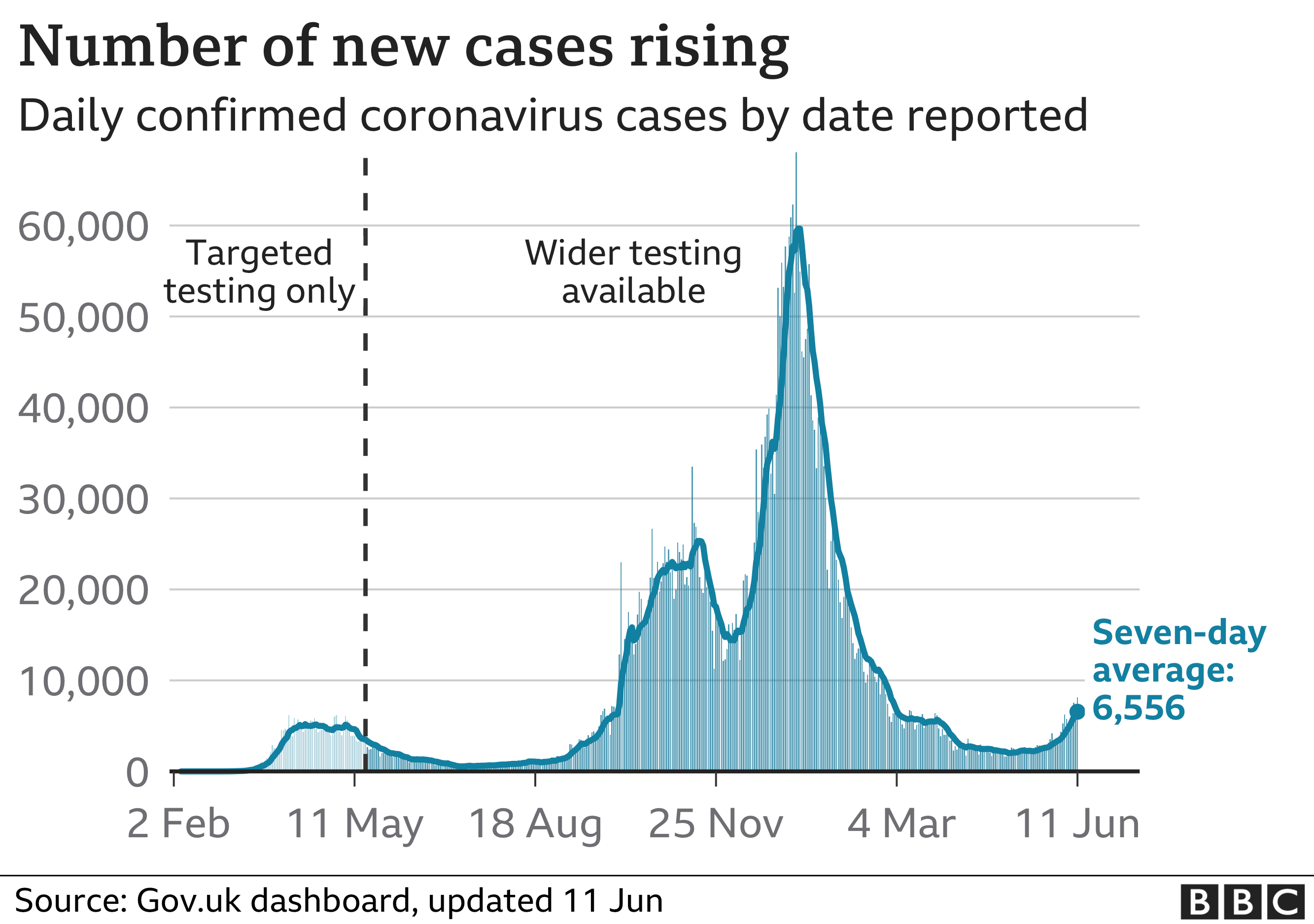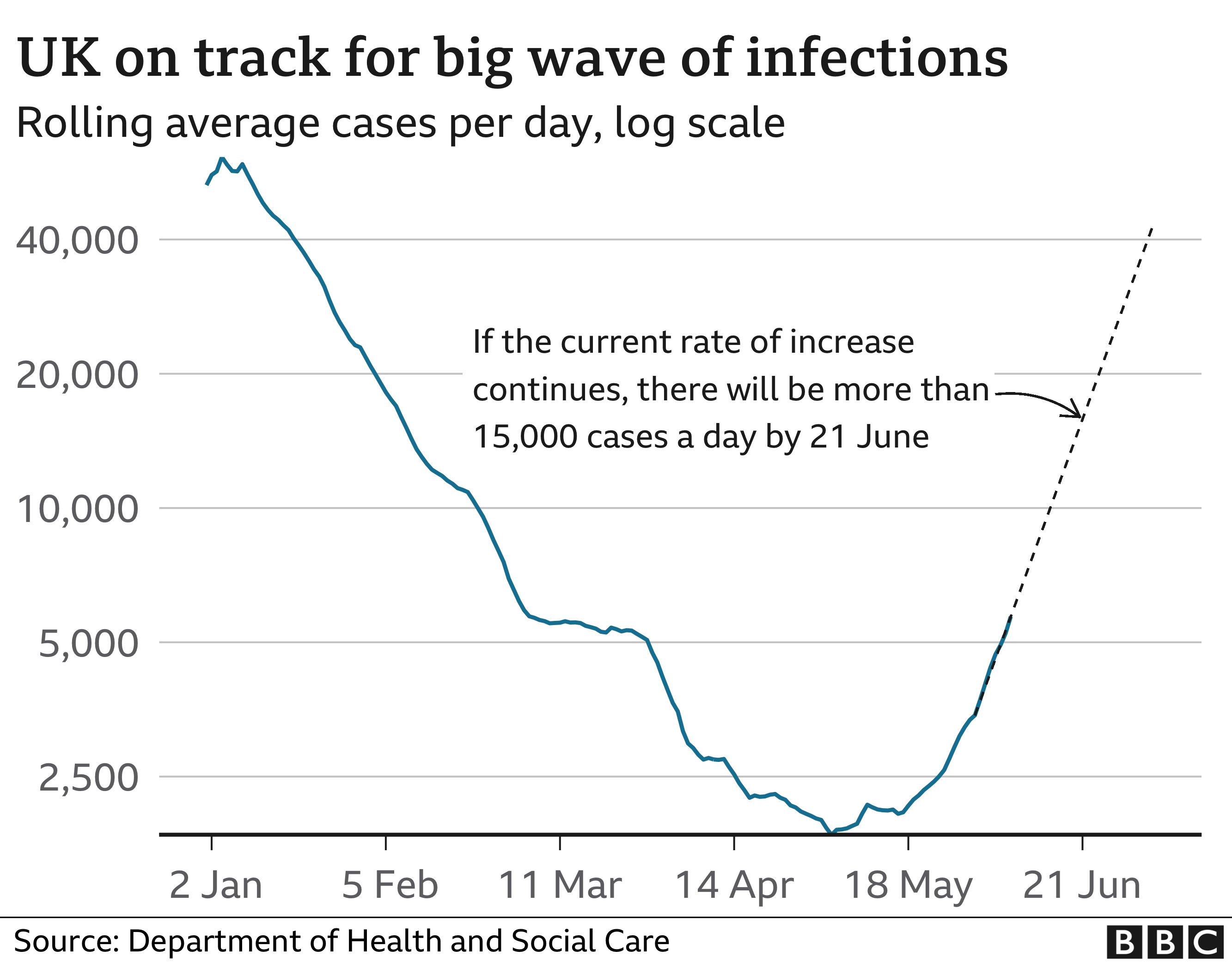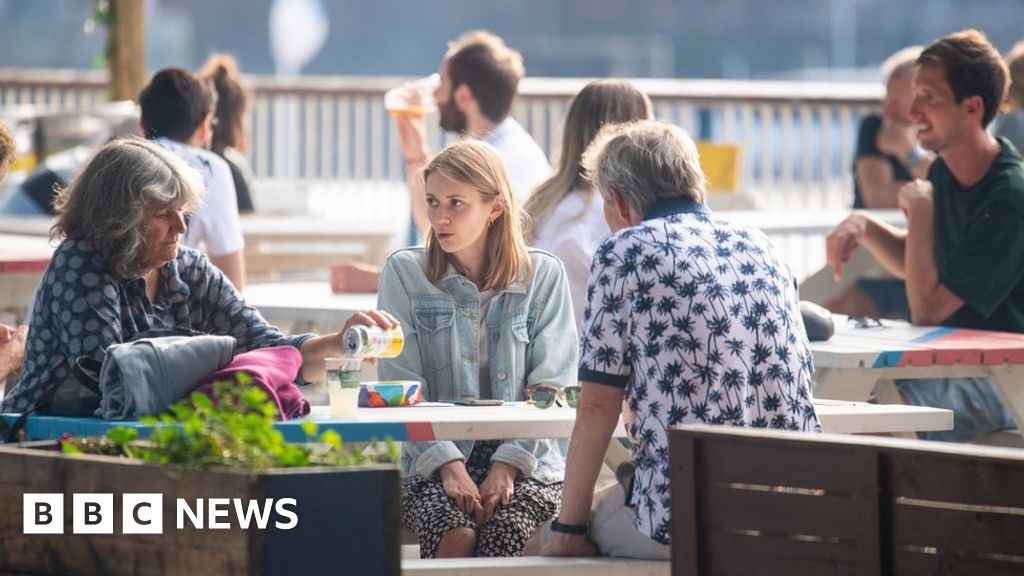
The government is considering delaying the lifting of England’s remaining Covid restrictions by up to four weeks, sources have told the BBC.
The final stage of lifting lockdown, originally planned to take place no earlier than 21 June, would see all legal limits on social contact removed.
It comes amid growing concern over rapidly increasing cases and the higher transmissibility of the Delta variant.
Downing Street sources emphasised that no final decision has been made yet.
Data is still being examined ahead of a final announcement scheduled for Monday, but a Whitehall source said a number of options were being considered and the four-week delay was currently the main one.
Pushing the date back would allow the vaccination programme to take greater effect, as the rollout moves through to younger age groups.
The Times and Sun newspapers first reported that ministers were considering the delay.
The last part of ending lockdown in England would see nightclubs reopen, and an end to restrictions on performances, weddings and other life events.
Prime Minister Boris Johnson has faced mounting pressure to push back the 21 June date in recent days.
The British Medical Association has joined public health officials in calling for a delay.
BMA council chairman Dr Chaand Nagpaul said: “It’s not just about the number of hospitalisations, but also the risk to the health of large numbers of younger people, who can suffer long-term symptoms.”
Following reports in the Times that some restrictions, such as the 30-person limit on weddings, could still be eased on 21 June, sources said various options are being considered.
The government said in February that England’s restrictions would only be lifted if:
- the vaccine rollout continues successfully
- evidence shows vaccines effectively reduce hospitalisations and deaths in those vaccinated
- infection rates do not risk a surge in hospitalisations which would put unsustainable pressure on the NHS
- its assessment of the risks is not fundamentally changed by new variants of concern
The Delta variant first identified in India now accounts for nine in 10 coronavirus cases in the UK.
It is roughly 60% more transmissible than the Alpha – or Kent – variant, Public Health England data suggests.
The analysis also found people infected by the Delta variant are twice as likely to end up in hospital than those with Alpha.

However, the data suggests nearly two-thirds of people infected with the Delta variant have not had a single dose of a Covid vaccine. Officials stress that two doses of the vaccine provide significantly more protection than one.
At the current rate of growth, as estimated on Thursday, the UK will hit 15,000 cases a day by 21 June and January levels of infections by late July – that is without any further relaxation of rules.
Shadow home secretary Nick Thomas-Symonds said any delay to ending lockdown would be “a huge blow for many families and businesses across the country”.
The Labour MP accused the government of continuing with “a reckless border policy that allowed the Delta variant to reach the UK and spread” despite warnings from scientists.
Earlier, Vaccines Minister Nadhim Zahawi said it was important to take a careful approach, adding: “We don’t want to squander those hard-fought gains that we have made through the vaccination programme.”

Another 8,125 virus cases were recorded in the UK on Friday, according to official figures, and another 17 people died within 28 days of a positive test.
More than 29 million people in the UK have had both doses of a vaccine – 55.4% of the adult population.
The R number in England is estimated to have risen to between 1.2 and 1.4, meaning that, on average, every 10 people with Covid will infect between 12 and 14 others.

- ENGLAND’S EUROS ANTHEM: Krept and Konan seek advice from players, Gareth Southgate and fellow rappers
- FOR FRIDAY NIGHTS IN: Choose one of our films to entertain you this evening

